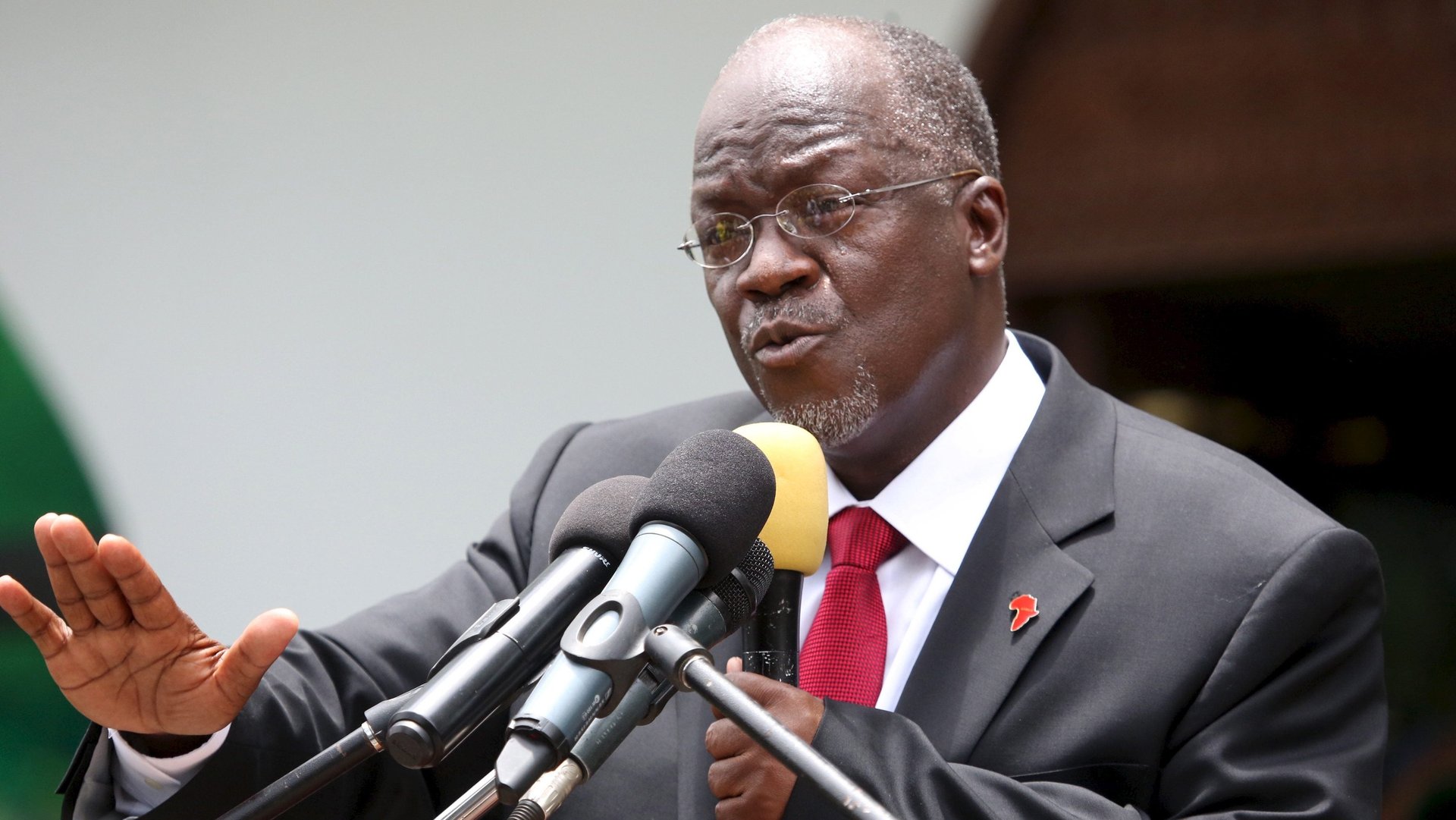The list of bans imposed by Tanzania’s populist president just keeps growing
Tanzania’s populist president John Magufuli strode into office in late 2015 promising to tackle corruption and introduce large-scale reforms.


Tanzania’s populist president John Magufuli strode into office in late 2015 promising to tackle corruption and introduce large-scale reforms.
Since then Magufuli hasn’t disappointed: taking on elites within his party, sacking corrupt or incompetent civil servants, and channeling money meant for independence day celebrations to anti-cholera operations. His strict and controversial leadership style has earned him the title of “the Bulldozer,” and has sparked social media memes with the hashtag #WhatWouldMagufuliDo.
Whether Magufuli is actually changing his country for better or worse is another debate. His bans generally fall into two broad categories of economic reform and social order. With economic reform, aside from fighting corruption, the other theme seems to be for Tanzania to be more assertive particularly when dealing with international partners. With social order there is a sense the administration is prepared to risk trampling on human rights to have Tanzanians fall into line.
Here is a list of the things his administration has banned over the last two years—in no particular order.
Registration of foreign ships
This week, Magufuli put a temporary ban on the registration of foreign ships, after the seizure of narcotics and weapons in at least five vessels flying the Tanzanian flag. The ships were seized in different parts of the world. In a statement, the president’s office said the ban would be in force until the system of reflagging vessels— which could help them evade control or scrutiny—was reviewed.
Export of minerals
Last year, Magufuli banned the export of unprocessed minerals as the government squeezed mining companies for higher revenues and royalties. His administration also asked the African subsidiary of the Toronto-based Barrick Gold to pay a jaw-dropping $190 billion in revised taxes, interests, and fines. After months of negotiations, the company said it will pay the government $300 million as part of a new deal, grant it a 16% stake in its mines, and equally split “economic benefits” from its operations.
Pregnant girls in schools
During a rally last year, Magufuli was quoted as saying that as long as he was president “no pregnant student will be allowed to return to school … After getting pregnant, you are done.” His decision was roundly criticized by human rights organizations who said it was out of touch with public opinion, contravened international human rights laws, and fuelled stigma against young girls and victims of sexual violence.
Public rallies
After the government banned live televised parliamentary debates, the opposition Chadema party called nationwide rallies to protest the decision. Tanzanian police responded by banning opposition rallies, a move which drew further criticism.
Newspapers and media outlets
Since coming to power, Magufuli’s government has tightened its grip on both digital and traditional media spaces.
The clampdown has taken on a new significance as the government introduced a law that would give it unfettered powers to police the web, register blogs and online forums, and prohibit material deemed as “offensive, morally improper” or that “causes annoyance.” Four newspapers have also been banned, including the Mwanahalisi and Mawio both of which were suspended for one and two years respectively. In 2016, two private radio stations Radio Five and Magic FM were also closed. Digital whistleblower outlets like Jamii Forums have also been targeted, with the government demanding they reveal the identities of users who shared sensitive information.
Shisha
Tanzania banned the smoking of shishas or water pipes over concerns that they were linked with drugs or alcohol abuse. Prime minister Kassim Majaliwa reportedly said shisha was killing future generations. Tanzania was arguably the first African country to impose the shisha ban. In March 2017, alcohol sold in plastic sachets were also banned.